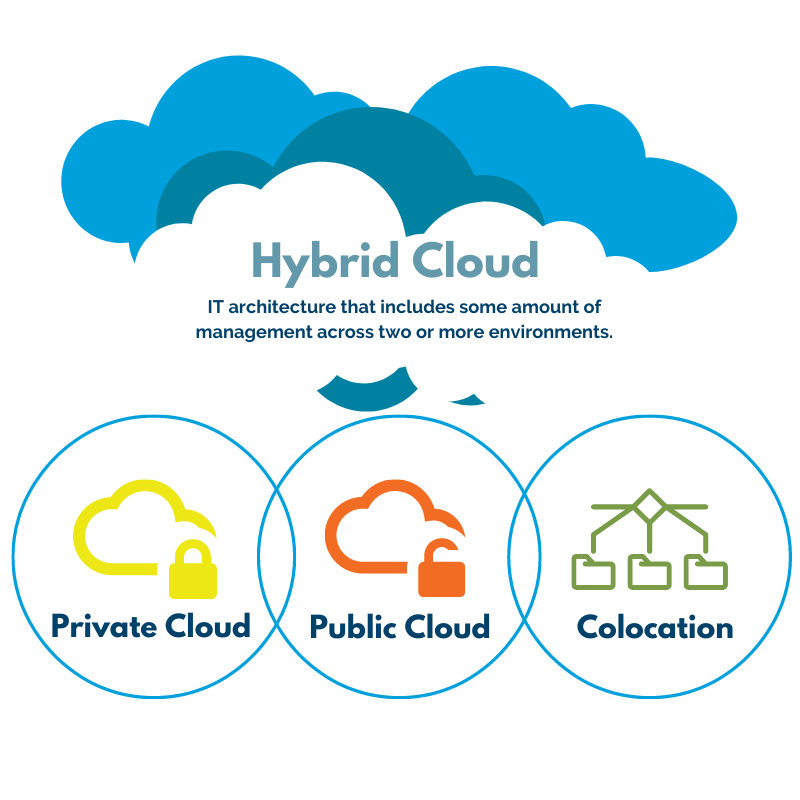A hybrid cloud is the combination of two or more separate infrastructure types, including on-premises infrastructure or private clouds, and public clouds.
Hybrid cloud technology has gained more popularity in recent times due to the ability of companies being able to want to combine the power of public cloud computing with more tightly controlled private infrastructure.

With the migration of data from conventional data centres growing, the deployment of hybrid cloud computing proves to be priceless, in helping companies access data round-the-clock.
Here are a few hybrid cloud benefits which include the following:
Hybrid cloud architecture empowers companies to combine a blend of different platforms, including public cloud and private cloud. Ensuring easy access to data across-board in the organization.
The flexibility of hybrid clouds is one of its most important advantages. Hybrid cloud computing enables businesses to provide resources when and where they are necessary while lowering the costs associated with 24/7 accessibility. Hybrid cloud services, also referred to as “cloud bursting,” can mix private and public clouds to handle peaks and valleys in IT demand more effectively while avoiding or eliminating service gaps.
Hybrid cloud can be connected by any of these methods:
Operating a hybrid cloud creates many challenges that cost your organization time and money:
At FPG Technologies and solutions, we address this limitation by extending an industry-leading HCI platform, enabling you to create a hybrid or multi-cloud environment spanning both on-premises data centers and public clouds.
With our FlexCloud solution, you can achieve all the benefits that hybrid cloud and multi-cloud environments are expected to deliver such as
To learn more our FlexCloud solution can improve your business agility, contact us via info@flexipgroup.com or REQUEST DEMO
Join our subscribers list to get the latest news and special offers.
Address: 26A Providence Street, Lekki-Phase1, Lagos, Nigeria
Telephone: 02016310191 / 02016310192 /
+234 817 200 4171
Email: info@flexipgroup.com
